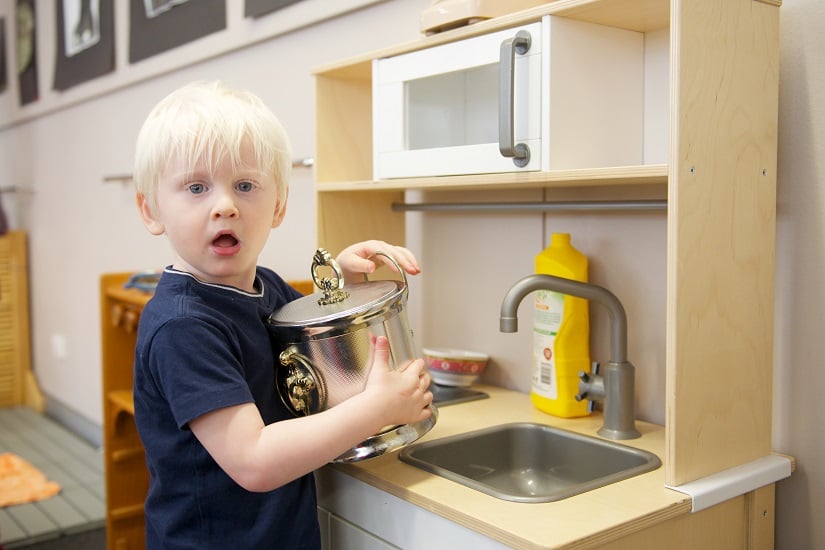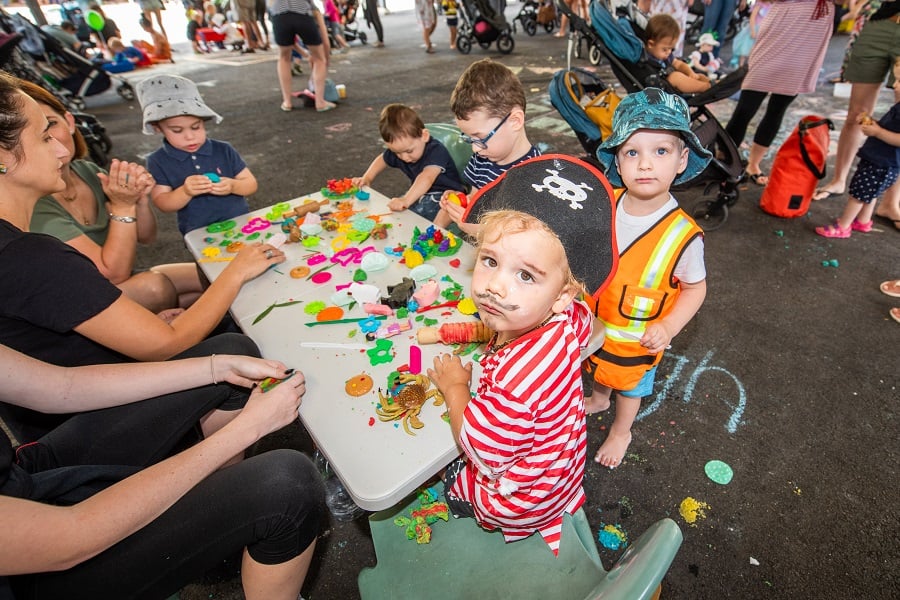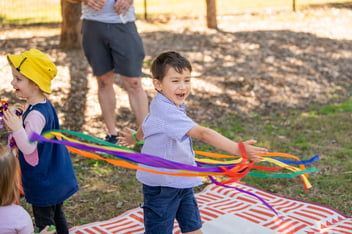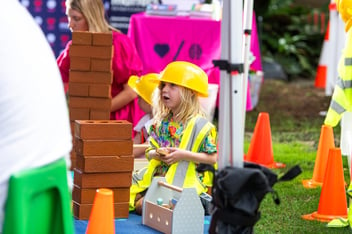
Nurturing Creativity and Innovation: The Power of Pretend Play
Blog > Nurturing Creativity and Innovation: The Power of Pretend Play

Nurturing Creativity and Innovation: The Power of Pretend Play
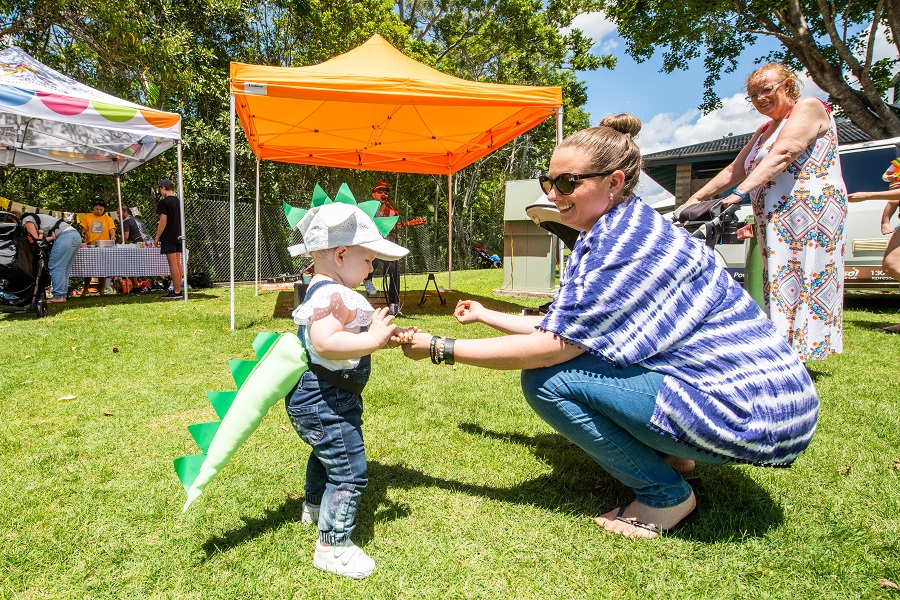
Ever wondered why children love to pretend they're pirates, princesses, or superheroes?
Visit any preschool classroom during free play and you’ll see a child pretending to be someone else. Beyond being fun for kids - pretending and other imaginative play are important for healthy brain development.
Pretend play, often referred to as imaginative or make-believe play lays the foundation for cognitive, social, and emotional growth. Exploring helps children learn and understand the world around them and it’s a vital aspect of childhood development.
The neurological processes behind pretend play
Children are born with a natural curiosity for the world and how people interact. It’s easy to see their little minds exploring the world in their infant days as they practice cause and effect by throwing toys out of the pram to see what happens next, and later hosting tea parties with their teddies and creating underwater musicals in the bath.
When children engage in pretend play, their brains are buzzing with activity. Studies show children who engage in pretend play during their preschool years are more creative and innovative some years later.
Pretend play helps children develop many important cognitive skills. Children are natural scientists, born ready to experiment and learn through play. Their discoveries not only adapt the structure of their brains but also strengthen the skills they need to be engaged, flexible learners for their whole lives.
Prefrontal Cortex Activation: Using our imagination lights up various neural pathways, especially in the prefrontal cortex. It’s responsible for higher-order cognitive functions including:
-
imagination
-
creativity
-
self-control
-
complex thinking
-
problem-solving
-
decision-making
When children pretend, this part of the brain works hard. It helps them to come up with scenarios, pretend to do things, and think about what will happen next. It also helps them to know the difference between what’s real and what’s pretend.
Neural Plasticity: Pretend play also stimulates neural plasticity, the brain's ability to adapt and learn. When children play different roles and situations, they form new neural connections, which enhances their overall cognitive development.
Mirror Neuron Activation: When performing an action or observing someone else perform an action, mirror neurons are activated. These neurons help children learn and understand social cues, emotions, and communication.
Hippocampus Involvement: Imaginative play engages the hippocampus too which is important for memory and spatial navigation. Creating imaginary worlds and narratives means remembering details, locations, and character attributes.

Language skills development through playful learning
Pretend play also helps the parts of the brain responsible for language skills. It can help children to learn new words, have more complex conversations, and understand sentence structure and grammar. It’s also important for developing storytelling skills.
Parents can help children build their language through pretend play by:
-
Bringing in characters from their favourite books or tv shows
-
Inviting children to use more adjectives to describe what they’re doing - not just climbing in the imaginary jungle, but swinging through the trees, feeling the gentle breeze, hearing the roaring water of a waterfall, the crunch of leaves under their feet.
-
Encourage children to verbalise their internal dialogue as they play - What is teddy thinking? Why did teddy fall down? Where might teddy go with his new backpack?
-
Experiment with characters and voices - If your doll is shy - how might they act? If your teddy is brave, what would he say when he’s meeting a new friend? If another toy is hurt, what could a caring old man say to them to make sure they’re ok?
When children create stories, assign roles, and talk to each other in their imaginary worlds, they improve their vocabulary without even realizing it.
Telling stories (which is a big part of pretend play) helps children to organize their thoughts and express them clearly.
Role-playing also helps children practice talking by encouraging them to say what they’re thinking, feeling, and wanting in a clear way.
%20(1).jpg?width=1840&height=1228&name=YARRABAH%20(47)%20(1).jpg)
Pretend play and problem-solving
Pretend play is a sandbox for problem-solving.
As children navigate their imaginary scenarios, they come across problems so they need to think creatively to find appropriate solutions. This form of play promotes flexibility by encouraging children to approach challenges from different angles. And encouraging pretend play helps children access their memories to solve problems.
When children engage in group pretend play they learn how to negotiate, collaborate, and use social problem-solving skills.
Supporting toddlers' pretend play
Most of the research on the neurological benefits of pretend play comes from preschool-aged children. But pretend play doesn’t just suddenly start when children turn three. So, when and how do children start to pretend?
Parents and siblings are often the first models of pretend play - starting with household items, such as spoons, bowls, blankets, dolls and cars for role-playing with young children. As children grow, the nature of pretend play changes. Parents and children start acting out more complex scenarios as children are able to grasp the concept of "just pretend" and "not real".
Pretend play doesn’t have to be something you do outside of your usual routines, in fact the best play is role playing real life situations that children will experience such as:
Going to the Doctor's Clinic:
-
Use a toy doctor's kit or real items like band-aids and thermometers.
-
Take turns being the doctor and the patient.
Cooking in the Toy Kitchen:
-
Use a toy kitchen set or real kitchen items.
-
Pretend to cook, serve, and eat imaginary meals together.
Grocery Shopping:
-
Set up a mini grocery store with toy food or empty food containers.
-
Shop, pay, and pack groceries together.
or get more imaginative with games like:
Animal Adventures:
-
Pretend to be different animals.
-
Crawl like a cat, hop like a frog, or roar like a lion.
Puppet Shows:
-
Use hand puppets or make simple ones from socks.
-
Create stories and dialogues, encouraging toddlers to join in.
Magic Carpet Ride:
-
Sit on a rug or blanket and pretend it's a flying carpet.
-
Describe the imaginary places you're visiting.
Storytelling Journey:
-
Read a storybook and act out scenes.
-
Use props and toys to bring the story to life.
How does parental involvement impact pretend play?
Parents aren't just spectators. They're active participants in their child's world of imagination.
By joining in, parents can enhance the pretend play experience. This can be as simple as playing along, asking open-ended questions, or introducing new scenarios that encourage the child to think more deeply about the play or try new skills in their communications. This type of active engagement in the play helps strengthen the parent-child bond through shared experiences, building trust in a safe way and creating in-jokes and fun memories together.
Pretend play at home is simple. Start by giving your child some time to play freely. Provide age-appropriate toys and props, like dolls, action figures, or even everyday household items. By removing any rules or suggestions on how to use the tools, children are able to explore in new ways sparking creativity and imagination.
.jpg?width=1250&height=834&name=JOSEPHBYFORD-100652-0206%20(1).jpg)
Exploring different relationships and experiences in pretend play
Pretend play helps children to imagine what it would be like to be someone else.
-
A child with an imaginary friend can play out different scenarios in their friendship without having to deal with the unpredictability of another person's behaviour.
-
A child pretending to be a superhero experiences the power of helping others and performing daring rescues.
-
A child pretending to be a mother can start to feel the trust and responsibilities of caregiving.
-
A child pretending to be a dog can explore the world through an animal's eyes.
Pretend play teaches children to pay attention to other children, cooperate, compromise and communicate their ideas and actions clearly.
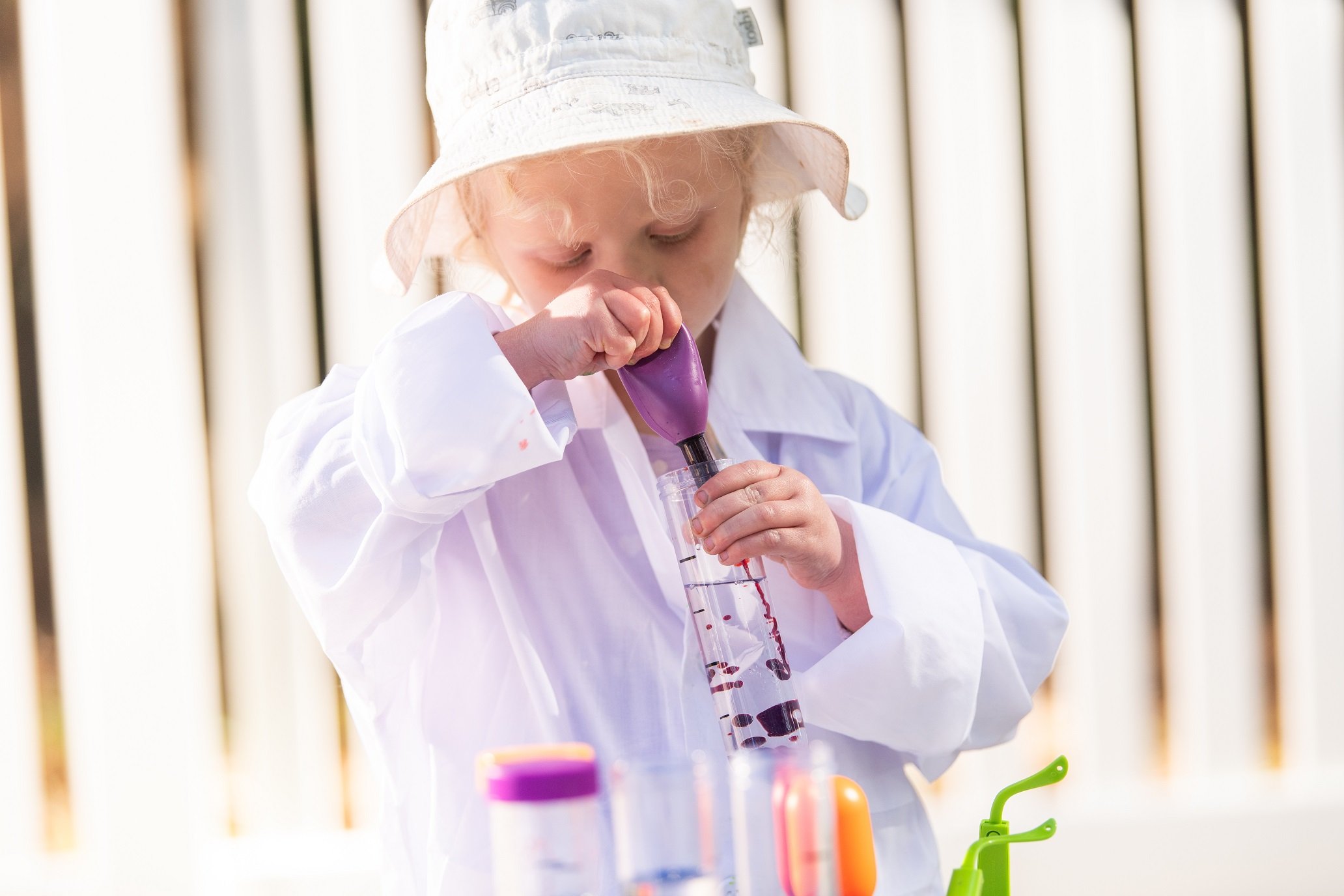
Foster your child’s brain growth with play
Pretend play is essential for child development. It activates key neurological processes and boosts language, problem-solving, and cognitive skills.
Parents and carers can support holistic development by embracing the world of imagination and participating actively in pretend play.
The science is clear: pretend play is crucial for children to thrive. It nurtures creativity, innovation, and social and cognitive skills. Parents, educators, and caregivers can foster holistic growth by providing opportunities for joyful, meaningful, and engaging pretend play.
Find a play experience near you:
Subscribe to our newsletter >
Related content:
Advertisement:
.jpg)






-2.jpg?width=1840&height=1228&name=YARRABAH%20(24)-2.jpg)
